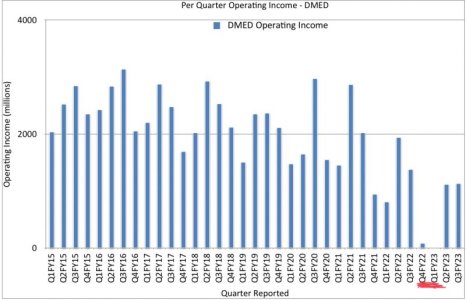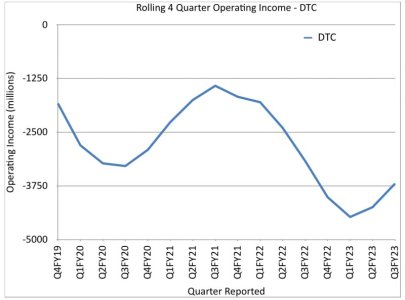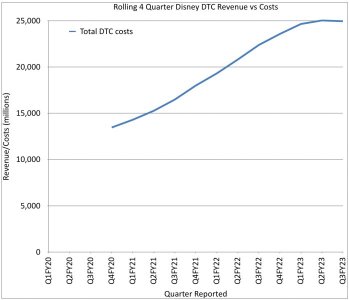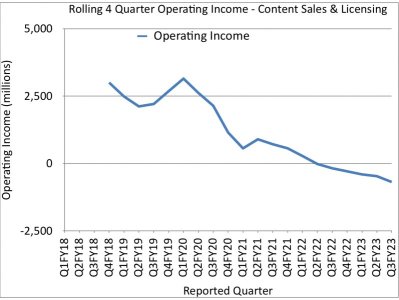wabbott
DIS Veteran
- Joined
- Aug 4, 2021
- Messages
- 7,096
Here's some more (but not all) of the Bloomberg piece from this morning.
https://www.bloomberg.com/news/news...ctors-strike-streaming-tv-woes?srnd=undefined
Within hours, Iger went from being the champion of creatives to an avatar for everything wrong with the entertainment industry in 2023. “There he is, sitting in his designer clothes and just got off his private jet at the billionaires’ camp, telling us we’re unrealistic when he’s making $78,000 a day. How do you deal with someone like that who’s so tone-deaf?” railed Fran Drescher, president of SAG-Aftra, which represents 160,000 actors. On picket lines, Sean Gunn, an actor in Disney’s Guardians of the Galaxy series, said, “Bob Iger makes 400 times what his lowest worker is making, and I think that’s a f---ing shame.” Nearly a month later, he was still being held up as the villain. “To hear Bob Iger say that our demands for a living wage are unrealistic?” actor and writer Billy Porter said in an interview about selling his house because of lost income during the strikes. “I don’t have any words for it, but: F--- you.”
Iger’s first run as CEO of Disney was one of the most celebrated tenures in corporate history: He oversaw the acquisitions of Pixar, Marvel Entertainment, Lucasfilm and 21st Century Fox. He pulled those intellectual-property powerhouses off Netflix to build Disney+, which signed up an extraordinary 10 million customers on its first day. He launched new cruise ships and opened a theme park in Shanghai. By the time he stepped down from the CEO role in early 2020, Disney’s market value had grown fourfold since he first took the job in 2005.
And then Bob Chapek took over, and everything seemed to go sideways. A margins-obsessed executive unknown in Hollywood circles, Disney’s former parks head managed to alienate virtually everyone, from the company’s creatives to the stars of his movies to theme park visitors who felt nickel-and-dimed. When the board finally ousted Chapek late last fall, Iger came back a conquering hero, supposedly the only person qualified for the job. “Of 8 billion people, they got the person who has the greatest chance, greatest capability to actually solve these problems,” Jeffrey Katzenberg, the former head of Disney’s studio division and a co-founder of DreamWorks, said at the time.
But Iger has suffered more setbacks in 11 months than he did during his first 15 years at Disney’s helm, with some problems unforeseen and others years in the making. Disney is now a business saddled with a dying TV division that Iger all but put on the block in that CNBC interview, declaring it “may not be core” to the company’s future. Disney+ has lost the company more than $2 billion so far this year and is bleeding subscribers as it tries to raise prices. Setting aside last year’s Avatar: The Way of Water (which is now the subject of a breach-of-contract suit filed by the film’s financier), its movie division is suffering from a string of box-office bombs that call into question its most prized franchises. Even Disney World in Florida is reporting lower attendance. Iger blamed the humidity. “For Bob, leaving Disney was like a father abandoning his favorite child,” says a current Disney executive close to Iger. “The good news is Daddy’s back, but the bad news is that the house is on fire.”
Like Apple’s Steve Jobs and Starbucks’ Howard Schultz, Iger was a star CEO whose identity had become indistinguishable from the company he helped build. But his second tour is looking less like a Jobsian triumphant return than a Schultzian descent into financial mediocrity and employee acrimony. Disney declined to make Iger available for an interview, but members of his inner circle and current and former Disney employees, who declined to be named as they aren’t authorized to speak publicly, describe him as overwhelmed and exhausted.
It’s not just Disney’s fate that hangs in the balance, but Hollywood’s, too. As Iger’s rivals merge, attempting to survive the transition to streaming, Disney was supposed to be the one company with the resources to compete with Silicon Valley interlopers Netflix, Amazon.com and Apple. Iger, once an empire builder, now finds himself attempting a yard sale of Disney assets, basing his strategy on whatever offers might trickle in. Blair Effron, whose Centerview Partners investment bank has recently been helping Iger chart Disney’s future, disagrees with this characterization. “Bob is approaching this incredibly strategically,” Effron says. “There’s a very deliberate plan over a deliberate timetable.” Yet the stock market has erased all trace of Iger’s laurels: Investors would be worse off today if they’d bought Disney shares when he first became CEO on Oct. 1, 2005, than if they’d put their money in the S&P 500.
Iger, who used to savor his time in Hollywood, doesn’t seem to be enjoying the town that made him. After sailing the Amalfi Coast in early August, he made a 48-hour pit stop at Disney headquarters in Burbank, California, to deliver another subpar earnings report, then flew straight back to the Mediterranean to spend more time on Aquarius, his 184-foot yacht. In September, while the company’s channels went dark for millions of Spectrum customers amid a bitter dispute with Charter Communications Inc. and Disney’s shares fell to their lowest price in a decade, he was laid up at home recovering from hip surgery. At times, when friends have asked about his return to Disney amid the barrage of negative headlines, he’s wearily joked: “Why did I come back?”
https://www.bloomberg.com/news/news...ctors-strike-streaming-tv-woes?srnd=undefined
Within hours, Iger went from being the champion of creatives to an avatar for everything wrong with the entertainment industry in 2023. “There he is, sitting in his designer clothes and just got off his private jet at the billionaires’ camp, telling us we’re unrealistic when he’s making $78,000 a day. How do you deal with someone like that who’s so tone-deaf?” railed Fran Drescher, president of SAG-Aftra, which represents 160,000 actors. On picket lines, Sean Gunn, an actor in Disney’s Guardians of the Galaxy series, said, “Bob Iger makes 400 times what his lowest worker is making, and I think that’s a f---ing shame.” Nearly a month later, he was still being held up as the villain. “To hear Bob Iger say that our demands for a living wage are unrealistic?” actor and writer Billy Porter said in an interview about selling his house because of lost income during the strikes. “I don’t have any words for it, but: F--- you.”
Iger’s first run as CEO of Disney was one of the most celebrated tenures in corporate history: He oversaw the acquisitions of Pixar, Marvel Entertainment, Lucasfilm and 21st Century Fox. He pulled those intellectual-property powerhouses off Netflix to build Disney+, which signed up an extraordinary 10 million customers on its first day. He launched new cruise ships and opened a theme park in Shanghai. By the time he stepped down from the CEO role in early 2020, Disney’s market value had grown fourfold since he first took the job in 2005.
And then Bob Chapek took over, and everything seemed to go sideways. A margins-obsessed executive unknown in Hollywood circles, Disney’s former parks head managed to alienate virtually everyone, from the company’s creatives to the stars of his movies to theme park visitors who felt nickel-and-dimed. When the board finally ousted Chapek late last fall, Iger came back a conquering hero, supposedly the only person qualified for the job. “Of 8 billion people, they got the person who has the greatest chance, greatest capability to actually solve these problems,” Jeffrey Katzenberg, the former head of Disney’s studio division and a co-founder of DreamWorks, said at the time.
But Iger has suffered more setbacks in 11 months than he did during his first 15 years at Disney’s helm, with some problems unforeseen and others years in the making. Disney is now a business saddled with a dying TV division that Iger all but put on the block in that CNBC interview, declaring it “may not be core” to the company’s future. Disney+ has lost the company more than $2 billion so far this year and is bleeding subscribers as it tries to raise prices. Setting aside last year’s Avatar: The Way of Water (which is now the subject of a breach-of-contract suit filed by the film’s financier), its movie division is suffering from a string of box-office bombs that call into question its most prized franchises. Even Disney World in Florida is reporting lower attendance. Iger blamed the humidity. “For Bob, leaving Disney was like a father abandoning his favorite child,” says a current Disney executive close to Iger. “The good news is Daddy’s back, but the bad news is that the house is on fire.”
Like Apple’s Steve Jobs and Starbucks’ Howard Schultz, Iger was a star CEO whose identity had become indistinguishable from the company he helped build. But his second tour is looking less like a Jobsian triumphant return than a Schultzian descent into financial mediocrity and employee acrimony. Disney declined to make Iger available for an interview, but members of his inner circle and current and former Disney employees, who declined to be named as they aren’t authorized to speak publicly, describe him as overwhelmed and exhausted.
It’s not just Disney’s fate that hangs in the balance, but Hollywood’s, too. As Iger’s rivals merge, attempting to survive the transition to streaming, Disney was supposed to be the one company with the resources to compete with Silicon Valley interlopers Netflix, Amazon.com and Apple. Iger, once an empire builder, now finds himself attempting a yard sale of Disney assets, basing his strategy on whatever offers might trickle in. Blair Effron, whose Centerview Partners investment bank has recently been helping Iger chart Disney’s future, disagrees with this characterization. “Bob is approaching this incredibly strategically,” Effron says. “There’s a very deliberate plan over a deliberate timetable.” Yet the stock market has erased all trace of Iger’s laurels: Investors would be worse off today if they’d bought Disney shares when he first became CEO on Oct. 1, 2005, than if they’d put their money in the S&P 500.
Iger, who used to savor his time in Hollywood, doesn’t seem to be enjoying the town that made him. After sailing the Amalfi Coast in early August, he made a 48-hour pit stop at Disney headquarters in Burbank, California, to deliver another subpar earnings report, then flew straight back to the Mediterranean to spend more time on Aquarius, his 184-foot yacht. In September, while the company’s channels went dark for millions of Spectrum customers amid a bitter dispute with Charter Communications Inc. and Disney’s shares fell to their lowest price in a decade, he was laid up at home recovering from hip surgery. At times, when friends have asked about his return to Disney amid the barrage of negative headlines, he’s wearily joked: “Why did I come back?”
 Alexander Coolidge
Alexander Coolidge




